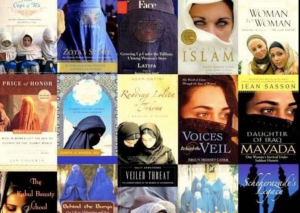As we approach the New Year and ponder the Christmas Season (accompanied by the now obligatory call for peace on Earth, at least till after the New Year), it’s important to stop and reflect on how riven the world is with strife and suffering.
For all the contemporary talk of peace, human rights, and the universal brotherhood of Man, the world remains brimming with conflicts. Some are achingly tragic conflicts that in other circumstances–more plentiful resources, different cultures, a different demographic mix, etc etc.–probably would have easily been avoided. Others are anachronisms of oppression, reproaches to all our modern talk of civilization where Man is simply and inexplicably, a la the Roman proverb, "wolf to his fellow man". Yet others are somewhere in between, complex mixes of tragedy, bad circumstance and human vices and sins.
In a world that bleeds so profusely, our priority should be on helping those that suffer, holding oppressors accountable, and on ending the root causes that lead to conflict. Our commitment shouldn’t be to ideological agendas, national honor, or abstractions that are removed from people’s real world experiences. Too many people today seem far more committed to "American national interests" or "free trade" than to humanitarianism or justice. Others are far too quick to sacrifice fundamental principle in the name of their nations’ "credibility" or "image", not realizing that it is precisely the cynical abandonment of of principle in the name of expediency that ultimately harms a nation’s prestige abroad the most. Finally, many are infinitely more concerned about protecting abstractions like nation-states or regional balances of power than they are about helping the people that populate those nebulous (and often arbitrarily composed) entities.
While I see the utilitarian value of stability and continuity, I’ve never understood why even the most haphazard national borders tend to be treated with such reverence, as if nation-states are are sacred ends in themselves rather than means to an end. (Of course, an exception is often made these days for countries whose governments Washington doesn’t like and which almost without exception turn out to be Muslim. Thus, neocon loons in the Beltway can bleat on and on about "regime change" in Syria and Iran without being sent off to the funny farm.) A nation’s health or legitimacy shouldn’t be measured by its GDP, adherence to unilaterally imposed standards (e.g., that obsession of the already rich West, intellectual property), or international power. It should be determined by the wellbeing of its citizenry, economically as well as politically.
By those humanistic as opposed to ideological standards, there are a fair number of borders that warrant some tweaking. Nations are a bit like marriages. In most cases, everyone’s better off if the various parties remain together. In other cases, though, all parties will in the long run benefit from territorial reconfiguration, as sources of intractable conflict will thus be removed and new possibilities opened. In such cases, the cessation of conflict and/or suffering should trump other concerns. Even given the inevitable suffering and displacement that will accompany a change, it’s sometimes the only humane, sustainable option for the people whose lives hang in the balance.
There is a legion of oppressed peoples trapped in modern nation-states, whether as a result of administrative ineptitude, colonial callousness, or outright conquest, states whose arbitrary borders have been effectively sacralized. These people’s suffering goes ignored because to fully acknowledge it, much take concrete steps to alleviate it, would undermine their captor nations’ dubious conception of sovereignty.
The Independent of London launched "an appeal for an abandoned people" this Christmas, referring to the people of Bethlehem and Palestinians in general during this time of a crushing and utterly unjust economic blockade against the Palestinian people. This suffering barely registers in the media. Similarly, the grievances, sufferings and needs of many other–Chechens, Uyghurs, Kurds, Kashmiris, West Saharans, Tibetans, Biharis, …–go ignored. They are trapped within borders that are arbitrary, unsustainable, and inevitably and tragically lead to more and more conflict.
Over and over again, the welfare of millions of people are sacrificed on the cold altar of "stability" and "national sovereignty". And with little tangible benefits for their reluctant compatriots, since the primary beneficiaries of the status quo remain elites. Whether there are 180 countries or 300 of them, most people will still live off less than a $1 a day.
So I don’t have an automatic problem with separatist movements, so long as they really represent the interests of the people and long as they don’t become an ideological cover for crime and corruption.
Of course, the Blogosphere cuts across national borders and potentially unites, but I often wonder if its basic tenor dooms us to the opposite. I’ve been pondering lately is how polarizing and ultimately misleading the Blogosphere can be. As invaluable as it is for getting alternative news or unique perspectives past the bland blockade of the MSM, I wonder if the net effort is to in a sense misinform by encouraging endless polarization more. In the Blogoshere, it’s all too easy to forget that every story has two sides.
Perhaps I’m as guilty here as everybody else–I chose the image of a razor for a reason–but I at least try to limit my sass to viewpoints that I think are woefully underreported in the MSM. (Of course, the paradox is how everyone in the Blogoshere seems to feel this way. Somehow, everyone views themselves as victims.)











